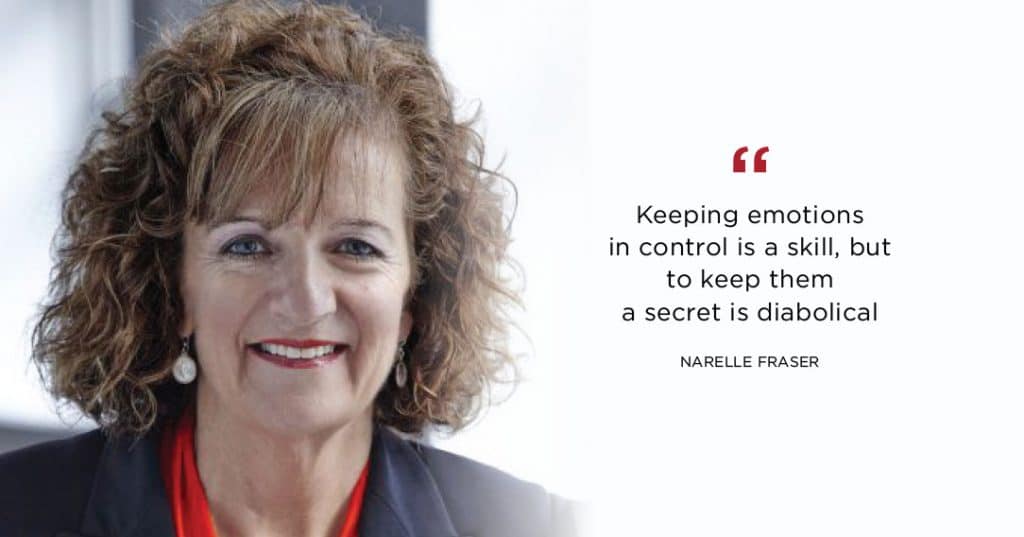How working on one of Australia’s biggest murder cases made me realise that emotion is not a weakness | Narelle Fraser | Law & Crime Speaker

Narelle Fraser led what she believed to be as a fairly normal life until she joined Victoria Police at 27 years of age.
Prior to joining the police, Narelle was a Lifeline volunteer counsellor, she wanted to make a difference. However, it was the beginning of a world completely foreign to her: violence, drugs, abuse and death. Every day was a new experience. Narelle was a detective with the homicide, rape and sexual crimes squads for 15 years; having received numerous commendations, medals and awards for dedication and diligence.
Narelle has investigated high profile cases including: Maria Korp, Anna and Gracie Sharpe and the society murders (Wales-King). She has also appeared as an Investigator on Australia’s Most Wanted and ABC’s Statewide Drive.
Here the Law and Crime Speaker shares with us why everyone, no matter what profession they’re in, should acknowledge stress and not keep it a secret.
Don’t show any emotion otherwise you’re off the case
This was the instruction from a Supervisor on one of the biggest double murder investigations in Victoria. I was a Detective with Victoria Police Missing Persons Unit and the country was watching our every move as we investigated this emotionally challenging high profile disappearance.
Detectives have to be at their absolute best when others are at their absolute worst – but we all have limits
After an exhaustive investigation, a suspect was formally interviewed at the Homicide Squad Offices. No matter how tough a Detective is, this investigation struck our hearts like few had, with not one Detective involved in the case left unaffected.
Keeping emotions in control is a skill, but to keep them a secret is diabolical
The media were in a frenzy with radio talkback full of support and often emotional commentary about the case. One caller spoke of concern for a family member who was part of the Police team and that member’s emotional struggle.
In brief that followed, a Supervisor stated if he found out whom that member was, they would “immediately be pulled off the investigation”.
So what did everyone do? From that moment on, nobody spoke of their difficulties, struggles and how they were (or were not) coping with the search.
We refused days off or leave owing – we were determined to give the victim’s their dignity and lay them to rest in peace.
How does anyone react to this sort of investigation?
On the 10th and final day of the search, we found what we had been looking for. I was elated that the victim’s family could finally find the peace they all so richly deserved and our gruelling search had not been in vain. I sat on a pile of rubbish, my head held in my hands and I felt overcome with emotion, not daring to show it for fear of being pulled off the search.
How could any normal person experiencing what we had just gone through, not be affected? Suppressing emotion had become a habit and started early in my Police career – emotion was viewed as a weakness. I came to be embarrassed and concerned at my empathy and compassion, which I’d always thought of as my strengths.
Trust your instincts, if you are concerned, talk to someone, anyone – but do something
A good Detective needs to understand the pain and despair felt by grieving families but be able to put aside their feelings to get the job done.
For some, like my Supervisor, emotion was uncomfortable and it was easier to look away and ignore it. My emotions had been bottled up over the years and the bottle was slowly filling, but I ignored the signs, thinking maybe I just needed a break.
All the trauma took its toll on me, I had to learn resilience which I had seen in so many others and face my vulnerabilities. It took until 2012 for me to be diagnosed with PTSD, but this diagnosis gave me an opportunity to make a positive out of a negative and to share my journey and lessons learned. My message is about understanding stress and trusting your own instincts.
“Victoria Police, the community and myself are changing attitudes, understanding the damage untreated stress can inflict. Where one door closed for me, others opened. I am one of the lucky ones.”